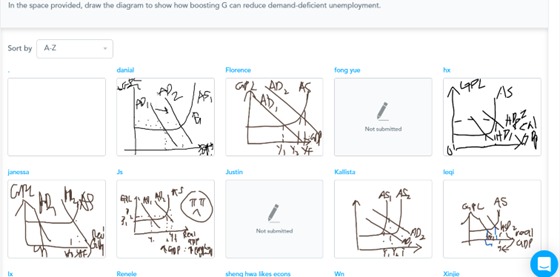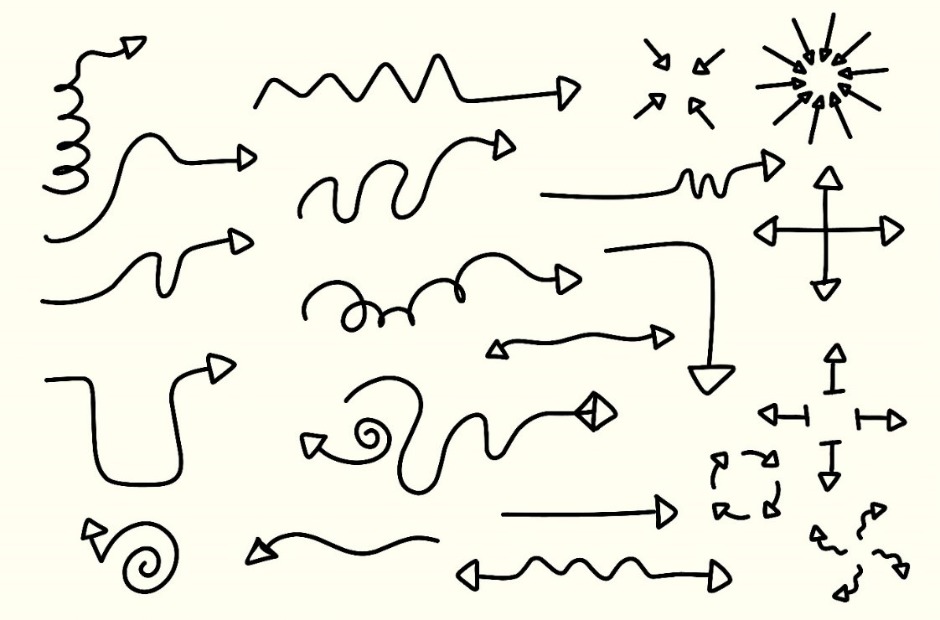To learn Economics, let’s play a game
28 Dec 2022
.jpg)
Firms, market structure, price differentiation… in the hands of Mr David Chong and Ms Zeng Wenjie, such topics are never dry or boring. They could even be turned into games, escape rooms and comics. The two teachers are recipients of the 2022 Outstanding Economics Teacher Award (OETA). Let’s hear how they make students look forward to their lessons.
“Mad professor! Run! Escape!”
It sounds like chaos has broken out and someone needs to look in on Mr David Chong and his classroom at Hwa Chong Institution.
But it’s not what you think. The Economics lecturer merely came up with an escape-room game to make problem-solving fun.
Over at Ms Zeng Wenjie’s classroom at Temasek Junior College, there’s high energy too: Her students are punching away at their devices to Reply, Like and Comment on answers to the quiz questions that Ms Zeng is posing online.
When students are excited, they learn better, says the senior teacher, who likes to gamify some of her lessons to make them more interactive. And the students are responding well to these efforts by her team of Economics educators, going by how TJC gets requests from students to take Economics at a higher level of H3 as enrichment to H2, where it doesn’t count towards their final grade. These elective modules, which include topics such as ‘Behavioral Economics’ and ‘Firms and Strategies’ offer students the option of delving deeper into their topics of interest without the full weight of the H3 curriculum.
While optional, these modules are a hit among students – sign-ups are often filled within a few days.
Mr Chong and Ms Zeng are recipients of 2022’s Outstanding Economics Teacher Award. They share their top three ways of raising student interest in Economics and excitement in the classroom.

#1: Ready, set… Game On
Inspired by how his students enthusiastically share interesting game play from various escape rooms, Mr Chong considered that a similar game with an Economics-themed storyline might interest them.
So he created his own virtual Escape Room game complete with suspenseful music, where students had to escape the clutches of a mad professor who had locked them up. This game format, which constitutes a storyline, requires players to find the clues to ‘escape’ within a given time.
“The design of the game took about a week,” he explains. “The most challenging part was fitting the economics concepts into the game, and finding and editing succinct newspaper articles that would feed into the game. For example, after students solved a chart corresponding to an economics concept, the numbers on the chart would go into the password for the PDF lock.”
From the shouts of high anticipation, and loud cheering when they solved a puzzle, Mr Chong knew the game factor was working.
Mr Chong also created a board game to simplify challenging topics such as market structure. To steer them away from memory work towards real-world application, the game places students in the roles of different economic agents, such as firms, consumers and producers. In trying to win in their role, they were forced to understand how markets work, “as well as pay attention to firm performance (cost, revenue, profit, efficiency etc), hence helping them better grasp market structure concepts”, says Mr Chong.
Did the game yield the desired results? “Some students later approached me to debate about the ‘fairness’ of the game. A challenging action could have yielded them fewer points, in comparison to a relatively easier decision. For instance, they argued that price discrimination is easier to introduce and should be awarded less credit if it succeeds as compared to product differentiation,” Mr Chong muses. Price discrimination refers to a strategy where the same product is sold at different prices to different buyers to maximize sales and profits. Product differentiation, on the other hand, seeks to distinguish a product from a competing product to make it more attractive to a specific target market.
“Their arguments showed that they were really invested in the game.”
#2: Reading comics as homework
To intrigue their students, Mr Chong and Ms Zeng sometimes incorporate atypical elements like cartoons into their lecture notes. For instance, Mr Chong mapped a summary of the ‘A’ Level syllabus not in diagrams but in comic form.
He hopes that the storytelling-style form of teaching would be a “refreshing departure from just notes and videos”.

An illustration by Mr Chong to visually represent and reinforce certain key Economics concepts the students had learned.
In another example, Mr Chong likened the writing of an Economics essay to courtship, much to squeals of amusement from his students. In the pursuit of a relationship, he says, one has to start with a compelling introduction before getting to know the other party in paces. In essay writing, this is translated into a clear and concise introduction, followed by the development of an argument one single point at a time.
.jpg)
Snippets from Mr Chong’s comic “Can writing an economics essay be like courtship?” Some comics take him up to a week to plan and execute.
He is grateful that his students find these drawings helpful. “Sometimes, they wait for me outside class and ask if I’m working on the next cartoon or comic. They share that learning becomes more relatable, and it helps them see the coherence between concepts,” he says.
Much like Mr Chong, Ms Zeng also caters to different learning styles by incorporating fill-in-the-blanks exercises to break down concepts. As Economics is sometimes perceived as a difficult and abstract subject, she hopes that this might ease students into more challenging content.
Ms Zeng explains, “The exercise helps students understand key cause-effect relationships. While this may seem very basic at the JC level, students have expressed that it helps to simplify the content and helps them understand the key relationships better.”
She is heartened that her efforts have not been in vain. “One student shared that it helped to build her confidence in the subject. This student had been struggling to improve in the subject and was also feeling demoralised when she was not seeing results. Slowly, she realised that she could handle the content, bit by bit, step by step, even if it might look challenging at first.”
#3: Like, share and comment
Both teachers are also no strangers to the use of technology.
Ms Zeng regularly uses digital learning tools such as Padlet to gather responses. It allows her to check her students’ responses at a glance, and she can provide quick and timely feedback too.
.jpg)
Using digital applications such a Nearpod, students can sketch their diagrams quickly and easily on their mobile device, in response to Ms Zeng’s question.
More pertinently, this form of collecting responses has encouraged greater participation as her students were typically shy before. “They fear looking foolish in front of their peers, and hesitate to share their responses with me when I call upon them in class.”
On Padlet, students are not able to view their classmates’ responses unless the teacher shares it publicly. This offers a safe space for them to key in their answers. “A quiet student who usually averts eye contact and responds with ‘I don’t know’ she was asked questions in class is sometimes the first to respond through Padlet!” she quips. “Students want to participate because they can do so without being judged by their classmates, and they are able to receive feedback from me on their responses.”

An example of the teacher’s interface on Nearpod. Ms Zeng can quickly check on students’ understanding, and shares that it is more efficient than if she were to invite a handful of students to draw on the whiteboard.
Mr Chong agrees, and shares that the beauty of digital tools like Google Docs is that students can also engage in collaborative work easily. In fact, when students work in groups, he encourages them to look at what other groups are doing.
He muses, “Sometimes it is funny that they copy from other groups thinking it is correct, but end up copying a mistake. All these provide great opportunities for me to address conceptual errors in class.”
Know an inspiring Economics teacher, or one who adopts creative methods to make Economics fun and engaging? Check with your school to nominate him or her for the Outstanding Economics Teacher Award.
We are on Telegram! Subscribe to our channel: https://t.me/schoolbag_edu_sg



.jpg)

